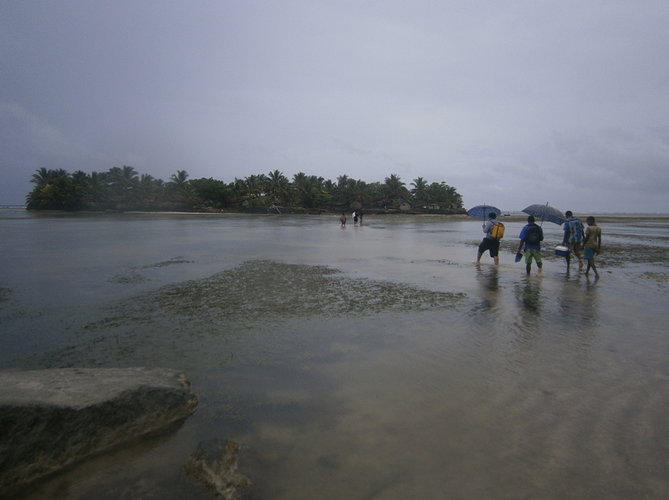LSHTM Open Data Kit : A server hub and device library for academic researchers
The London School of Hygiene & Tropical Medicine is a world-leading centre for research and postgraduate education in public and global health with active research in more than 100 countries. Our mission to improve health leads our staff and students to work in some extremely challenging circumstances; from sites of outbreaks, through lawless jungles to refugee camps and lonely islands in big oceans. Our diverse portfolio of research projects, clinical trials and public health interventions have complex data needs that paper forms simply can’t meet in the age of open research.
Doing a PhD that involves several months island-hopping in the Western Pacific sounds too good to be true. For two of our students it really was and the reality of their epidemiological field surveys in the Solomon Islands, Fiji, Vanuatu and Kiribati was weeks at sea, bouts of dengue fever, rain, weight-loss, more rain, an 8.0 magnitude earthquake and a big pile of sloppy paper that used to be case recruitment forms. These studies aimed to inform regional disease control protocols and 10,000 sheets of paper in the bottom of a canoe in the middle of the Pacific Ocean just wasn’t working out as planned.
LSHTM Field team carrying survey equipment from boat to an atoll of Kiribati, Weastern Pacific
Our solution was to use waterproofed Android phones running ODK and the result was real time data flows from some of the most remote places on earth to our secure institutional servers in London, UK. That first data set that we collected with ODK felt like a minor triumph, but it wasn’t one that we could lay any claim to. The ODK development community had already invested years of time and effort to get it to the point where using ODK Collect was so easy.
At this stage we wondered how we could use what we’d learned in the Pacific Islands to encourage a culture of electronic data collection at LSHTM. Making new instances of the server was now a simple process and sharing the system with our colleagues felt like an obligation to the LSHTM mission. The result was the LSHTM Open Data Kit project (odk.lshtm.ac.uk) and we now provide ODK servers and technical support to any LSHTM staff member, student or collaborator under a pay-what-you-can (PWYC) agreement. To further reduce the need for up-front payments by the end-user, we have reinvested the PWYC fund in a ‘device library’ that includes a large number of armoured Android devices, powerbanks, solar briefcases, environmental sensors and other equipment. As with the servers, access to the device library costs the end-user only what they are able and/or willing to pay.
In the coming year we aim to expand our service to our neighbours at the Bloomsbury Colleges (Birkbeck, The Royal Veterinary College, The School of Oriental and African Studies) and University College London before maybe taking the service further afield. Expansion and long-term sustainability will require substantive funding, but we hope to source the majority of capital from some of the 50+ global health charities, NGOs and government departments whose work we have supported over the past two years. This will continue to defer costs away from the end-users.
To date the ODK group has supported more than 75 separate projects. We have established developed teaching materials and run regular training sessions. Our device library is fully booked for the whole of the summer and we are being kept very busy by the many requests for servers and support.
